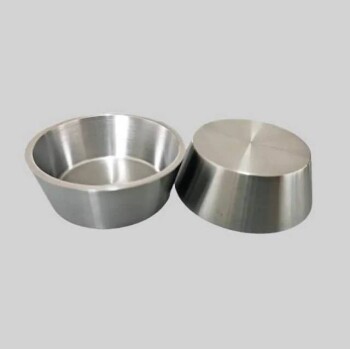An evaporator in a chemistry lab, particularly a rotary evaporator (rotavap), is a device used to efficiently and gently remove solvents from samples through evaporation. It is commonly employed in organic laboratories to concentrate samples by evaporating volatile solvents under controlled conditions. The process involves rotating a flask containing the sample at a constant speed, which enlarges the evaporation area and facilitates faster solvent removal. Rotary evaporators are particularly effective for solvents with low boiling points, such as ethyl acetate and n-hexane, but can also handle higher boiling point solvents when combined with a vacuum system and drying agents. This method is faster and more efficient than evaporation under atmospheric pressure.
Key Points Explained:

-
Definition and Purpose of an Evaporator:
- An evaporator, specifically a rotary evaporator, is a laboratory device designed to remove solvents from samples through evaporation.
- Its primary function is to concentrate samples by gently and efficiently evaporating volatile solvents, making it a staple in organic chemistry labs.
-
How It Works:
- The sample is placed in a rotating flask, which spins at a constant speed. This rotation enlarges the surface area of the solvent, promoting faster evaporation.
- The process is typically carried out under reduced pressure (vacuum) and elevated temperature, which lowers the boiling point of the solvent, allowing for gentle and efficient removal.
-
Applications in the Lab:
- Rotary evaporators are widely used to separate solvents from solutes, whether the solute is a solid or a liquid.
- They are particularly useful for concentrating samples before analysis, ensuring that the solute is isolated in its purest form.
-
Advantages Over Atmospheric Evaporation:
- Rotary evaporators are more efficient than traditional evaporation methods conducted at atmospheric pressure.
- They are faster and can handle a wider range of solvents, including those with relatively low boiling points.
-
Handling Different Solvents:
- Solvents with low boiling points, such as ethyl acetate and n-hexane, are easily removed using a rotary evaporator.
- For solvents with higher boiling points, like water or dimethylformamide (DMF), a vacuum system capable of achieving very low pressures is required. Additionally, drying agents like magnesium sulfate may be used to pre-treat the sample.
-
Key Components and Process:
- Rotating Flask: The flask rotates to create a thin film of the solvent, increasing the surface area for evaporation.
- Vacuum System: Reduces the pressure inside the system, lowering the boiling point of the solvent.
- Heating Bath: Provides controlled heating to facilitate evaporation.
- Condenser: Cools the evaporated solvent, converting it back into a liquid for collection.
-
Considerations for Purchasers:
- Versatility: Ensure the rotary evaporator can handle a range of solvents, including those with higher boiling points.
- Efficiency: Look for models that offer rapid and gentle solvent removal to preserve the integrity of sensitive samples.
- Ease of Use: Consider the simplicity of operation and maintenance, as well as the availability of replacement parts.
- Safety Features: Check for built-in safety mechanisms, such as automatic shut-off in case of vacuum failure.
By understanding these key points, purchasers can make informed decisions when selecting a rotary evaporator for their laboratory needs, ensuring that the equipment meets their specific requirements for solvent removal and sample concentration.
Summary Table:
| Aspect | Details |
|---|---|
| Purpose | Removes solvents from samples via evaporation, concentrating samples. |
| How It Works | Rotates flask to increase surface area; uses vacuum and heat for evaporation. |
| Applications | Concentrates samples, separates solvents from solutes in organic chemistry. |
| Advantages | Faster and more efficient than atmospheric evaporation. |
| Handling Solvents | Effective for low and high boiling point solvents with vacuum and drying agents. |
| Key Components | Rotating flask, vacuum system, heating bath, and condenser. |
| Purchasing Tips | Consider versatility, efficiency, ease of use, and safety features. |
Ready to enhance your lab's efficiency? Contact us today to find the perfect rotary evaporator for your needs!













